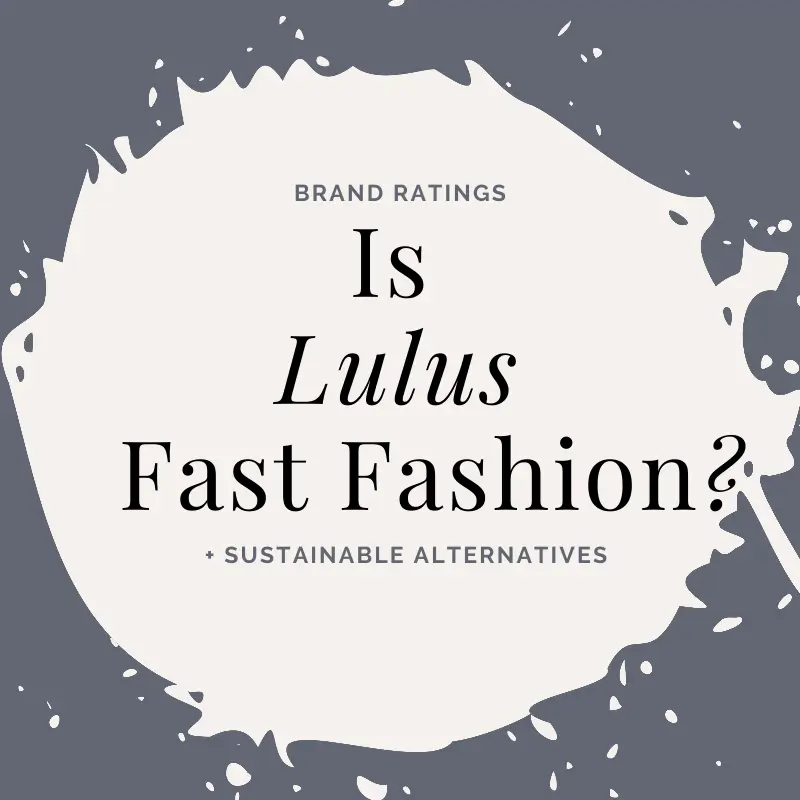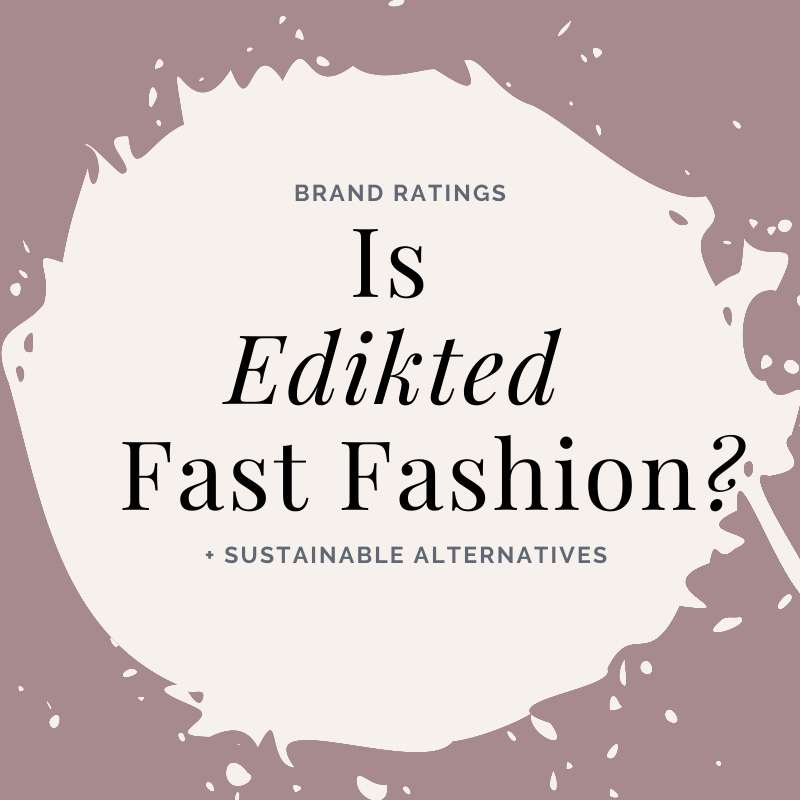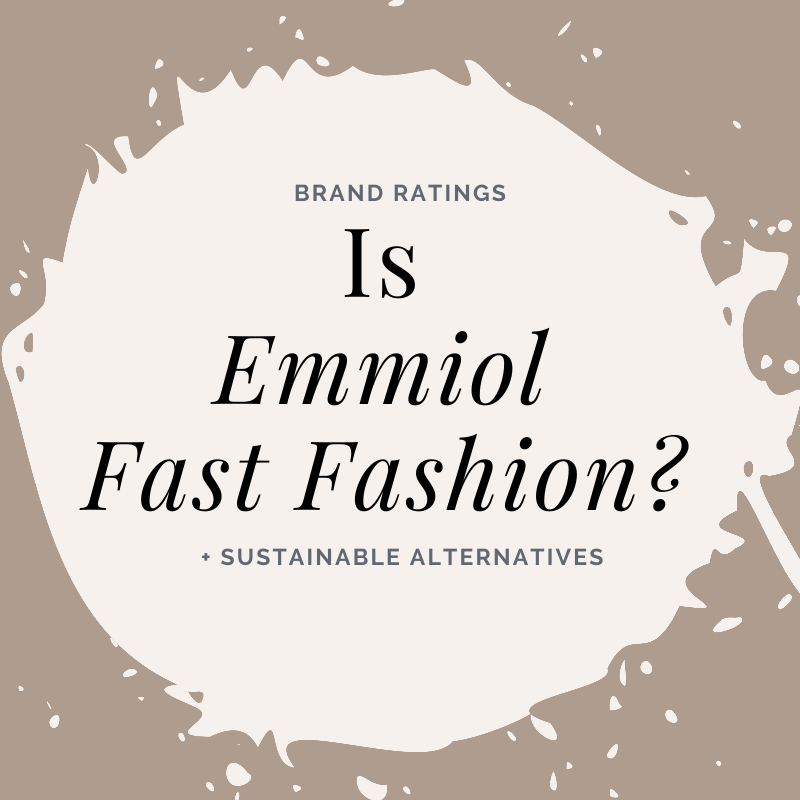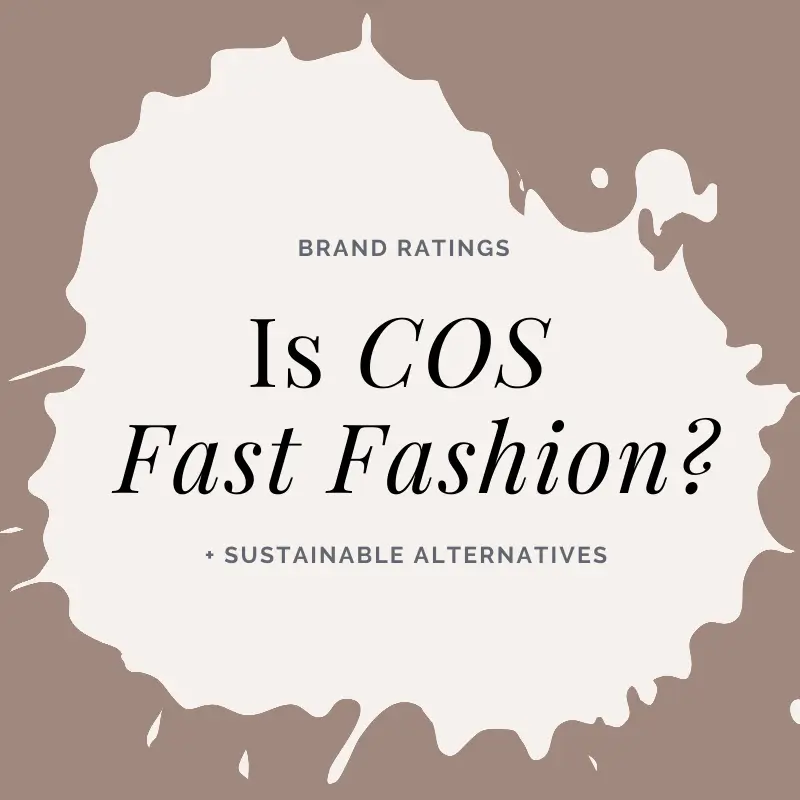
Minimalist clothing brand COS is well known for its contemporary designs and timeless collections, but is COS fast fashion?
We’ll ask the question and take a deep dive into the brand to see what materials the brand uses and whether it is ethical.
Let’s jump in.
Ecothes Opinion: COS Sustainability Rating
What we liked:
✔ The brand prioritizes using sustainable materials such as organic cotton, recycled cotton, and recycled polyester over virgin materials.
✔ The brand has some transparency surrounding its supply chain.
✔ The brand has targets for reducing GHG emissions. However, these targets are yet to be met.
What we didn’t like:
❌ We felt the lack of transparency around workers’ wages and working conditions fell short of the transparency we expect in a truly ethical brand.
❌ COS is part of the H&M group, which is notorious for fast fashion.
About COS
Cos is a clothing brand creating contemporary minimalist collections for mid-range prices. The brand is part of the H&M group, with parent company H&M owning popular retail brands including H&M, Other Stories, Monki, Arket, and Cos.
While Cos is part of the H&M group, its products have a more luxury feeling, and the brand feels more ‘premium’ than H&M.
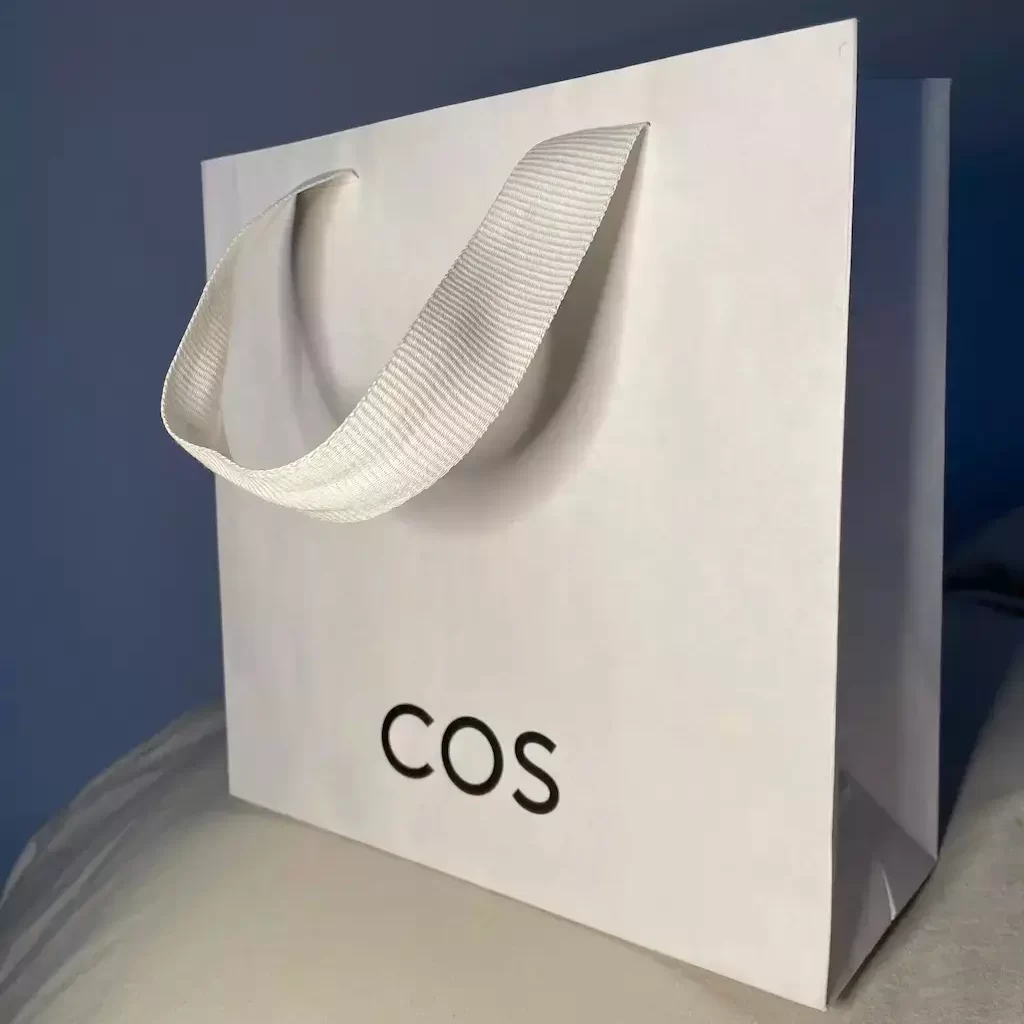
Is COS Fast Fashion?
While we wouldn’t consider COS to be a fast fashion brand itself, the brand is owned by the H&M group, which is one of the most notorious fast fashion brands in the world.
On a brand level, COS doesn’t follow the same fast fashion model as H&M. As COS doesn’t sell its products for a low price, its clothing is generally well made from sustainable materials.
Overall, we wouldn’t consider COS an ultra fast fashion brand (like H&M or Zara), but we wouldn’t consider them a slow fashion brand either, as the brand produces many different styles in every collection, and they’re owned by fast fashion giants H&M.
While I’ve bought COS clothes in the past, and think they’re genuinely well made and last for years, the fact they’re part of the H&M group does put me off supporting the brand.
What Materials Does Cos Use?
The H&M group publishes a brand sustainability report which covers all of its brands, including COS. The group targets 100% of its materials to be recycled or sustainably sourced by 2030. In 2021, 80% of H&M group’s materials were sustainably sourced or from recycled sources, an increase of almost 16% from the previous year.
Overall, COS uses sustainable and recycled materials for most of its collection.
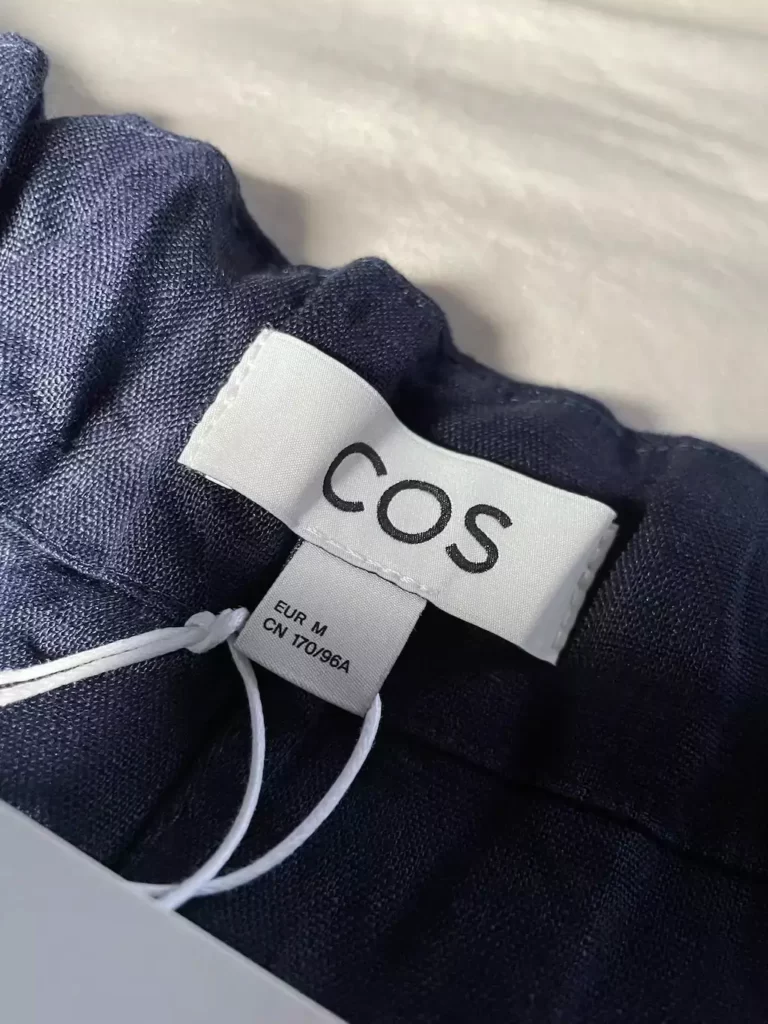
The sustainable materials COS currently uses are:
-
Recycled cotton
-
Recycled wool
Is Cos Carbon Neutral?
No, COS is not a carbon-neutral brand. Cos’ parent group H&M is transparent about carbon emissions and has targets to reduce its GHG emissions, including its electricity, energy, and water footprints. However, the brand isn’t actually on track to meet its water reduction targets by 2022.
Is COS Ethical?
One thing we like about COS and the H&M group is its transparency. H&M scored the second highest score in the 2021 Fashion Transparency index with an overall score of 68%, down slightly from 73% in 2020.
However, while being transparent is a great step in holding brands accountable for their production practices, transparency doesn’t always equal sustainability.
While the brand publishes a transparent list of its 602 factories, it doesn’t give additional information about the audit scores surrounding the working conditions or wages of these factories. In addition, it has been reported that H&M fell short of its pledge to provide all garment workers a living wage in 2018.
An improvement we’d like to see is the group taking it a step further to publish audit results of its factories and a transparent list of garment workers’ wages.
However, the brand is working to reduce the use of harmful chemicals in its supply chain to protect workers and the environment, with 95% of its suppliers involved in the Zero Discharge of Hazardous Chemicals (ZDHC) programme.
Where are COS Clothes Made?
While the H&M group publishes the full list of its suppliers, it doesn’t detail which factories produce garments solely for the COS brand.
H&M manufactures in over 602 factories worldwide, with most of its suppliers based in China, Bangladesh, and Turkey.
Find the complete list of H&M suppliers here.
Is COS Cruelty-Free?
H&M states they have strict requirements for materials of animal origin, such as wool, leather, or down.
While the brand doesn’t use fur, exotic skins, or angora wool, COS collections often feature other animal-derived products such as leather and wool.
The wool and cashmere used in COS knitwear carry certifications such as RWS (Responsible wool standard) and the GCS (Good Cashmere Standard).
Does COS Have A Clothing Recycling Program?
COS only has recycling points in Austria, Poland, Spain, Italy, France, Sweden, Denmark, and The Netherlands as part of its recycling program.
The brand does have a resale platform where you can sell your pre-loved COS clothing online.
Sustainable Alternatives to COS
While COS does use sustainable materials, more can be done by the brand to ensure ethical labor, safe working conditions, and fair wages for its workers. Check out a few of our favorite sustainable brands similar to COS.
1. Ninety Percent
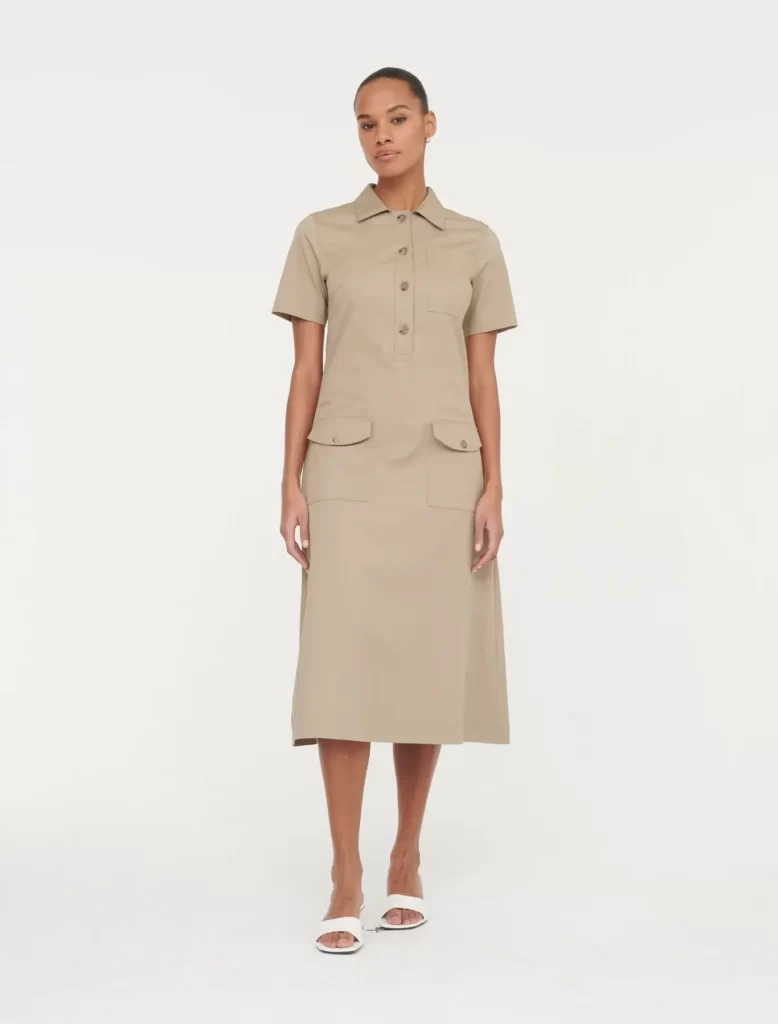
2. KOTN
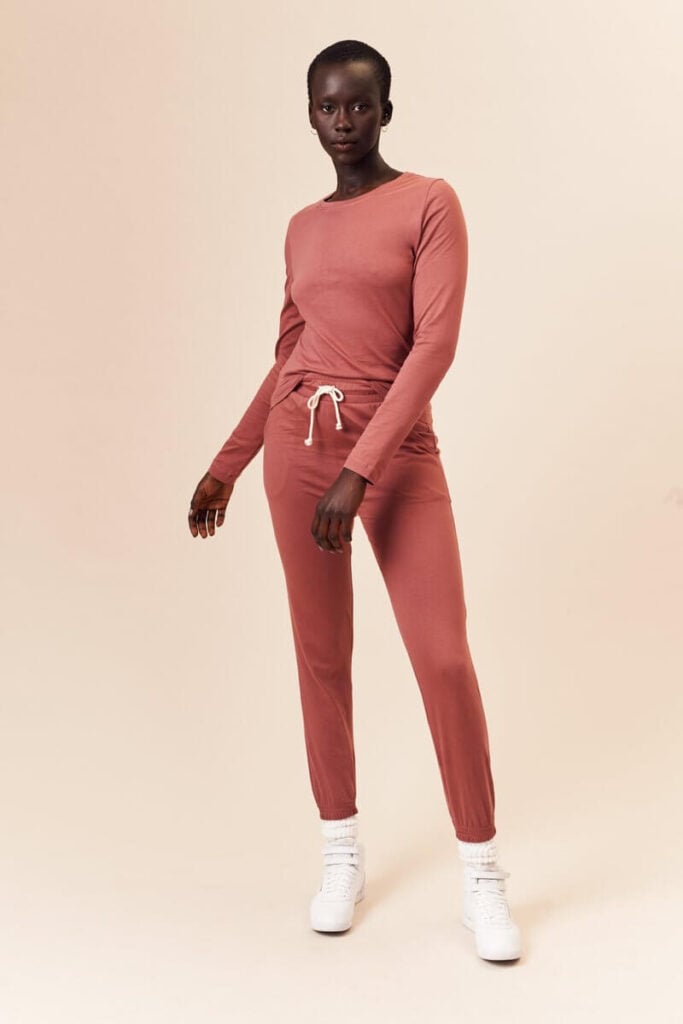
3. Reformation

Continue to discover if other brands are actually fast fashion like Sezane, Banana Republic, Hollister, Nasty Gal, and Girlfriend Collective.

